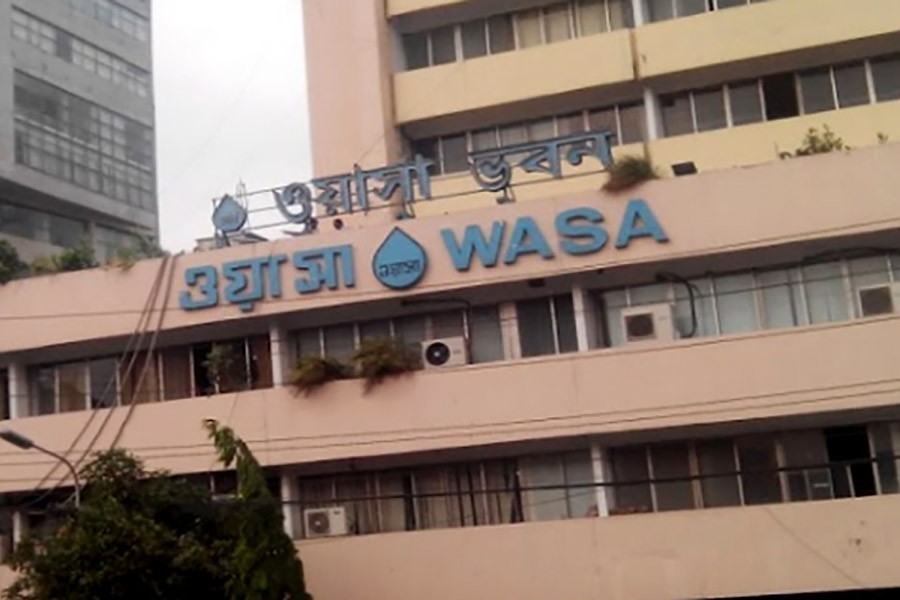
Published :
Updated :

The Dhaka Water Supply and Sewerage Authority (DWASA) has chosen one of the worst times to propose a hike in water tariff by 20 per cent or more. Residents barring the affluent ones living in Dhaka city, as elsewhere in the country, are already reeling from the skyrocketing prices of essentials. Hit hard by pandemic fallouts, low-income people are finding it hard to get both ends met.
The incumbent managing director of DWASA, who happens to be the longest-serving chief of the organisation, at a press meet last Wednesday informed the media of his organisation's move to raise the water tariff. He said the increase is aimed at reducing the subsidy content, which, according to him, is very high.
The WASA chief appeared very unsympathetic to the cause of the poor consumers when he said, "the DWASA won't mind if the government considers a raise more than the one proposed by it".
The DWASA is one state utility service provider that shows an extreme propensity to hike its tariff. The relevant piece of the legal instrument allows this entity to raise tariffs at a rate up to 5.0 per cent annually. It has been using that legal provision every year without any miss. At times, it wants an increase higher than the allowable one. The authority had increased the water tariff by 22 per cent and 18 per cent for residential and commercial users, respectively, in 2017.
The local government ministry, for reasons best known to it, appears to be unusually accommodative while dealing with proposals from the DWASA in recent years. This is evident from the increase in water rates between 2017 and 2021. If the government approved the increase proposed by the DWASA, the water tariff would go up 100 per cent over the past six years.
Water is a free-of-cost natural resource. However, extracting it from underground or drawing from natural streams such as rivers entails cost. The piped distribution of the same to consumers also involves substantial spending. The other state entities, which manage far more cost-intensive operations, tend to show restraints when it comes to hiking their tariff. The Bangladesh Energy Regulatory Commission (BERC), the energy sector regulator, debars the utility service providers, such as the Power Development Board and gas distribution companies, to fix tariffs at will. There is a provision of a public hearing where rights groups and others raise objections to any move to raise tariffs unjustifiably. For DWASA or CWASA, no regulatory control is there.
Hiking the prices/ rates by utility service providers is nothing unusual. But the problem arises when inefficient entities like the DWASA try to pass the cost of mismanagement, widespread pilferage and other irregularities on to the consumers in the name of subsidy reduction. Thousands of illegal water connections are there. DWASA employees' complicity is proven. On occasions, a few connections are snapped, only to be restored within hours.
The government should, before approving any further hike in water tariffs, investigate the state of affairs within the DWASA. Its performance has not been up to the satisfaction of the people. The quality of water it supplies to homes is not beyond question. Besides, it has been failing to meet the water need of a sizeable population of the city.
The government should design a mechanism where people and relevant others will have an opportunity to express their opinion on any proposal to hike the water tariff. Then again, the local government ministry needs to remove a few contradictions seen in the legal instrument in the matters of water tariff fixation. One provision gives the DWASA the power to raise the rate by 5.0 per cent annually. Another provision allows it to send the proposal to its controlling ministry, seeking a greater increase in tariff.
zahidmar10@gmail.com


 For all latest news, follow The Financial Express Google News channel.
For all latest news, follow The Financial Express Google News channel.